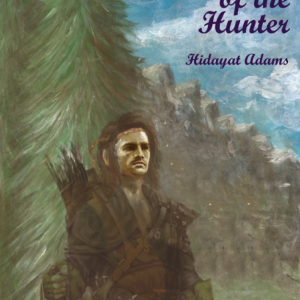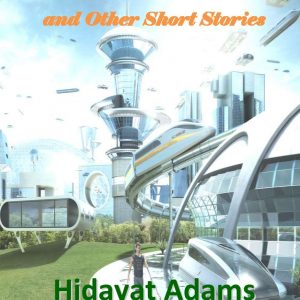I wrote my first story in October 2002 when I was teaching in Jeddah, Saudi Arabia. The story was a response to the claim of an American colleague, Eric Ennis, who believed that Americans are the best writers, and that South Africans can’t write very well. Granted, American writers are very prolific, but that doesn’t mean they are the best.
I bet Eric that I could write a complete short story in 15 minutes flat, and I proceeded to do just that in front of him while he was watching me hammer the story out in the staff room. Of course, over the years I edited and corrected parts of the story, but I had done what I had stated I could do, and I was hooked. The story was Rebirth, which is one of the stories in Mamlambo and Other Short Stories.
That was when I realised I might actually have a hidden talent for writing very short stories that had all the elements of a tale: an exposition, character development, conflict, a climax and the inevitable twist. I didn’t continue to write consistently, but wrote occasionally, mostly one-page stories. It wasn’t until 2015 when I returned to Cape Town after having taught English in Oman for 13 years that I started thinking about writing more regularly.
It was as if a switch had suddenly been turned ON (yes, with capital letters), and I became inspired to write. The person who inspired me and still motivates me is Ebrahim Ismail, an ex-student, current friend from my days of teaching in Cape Town. He encouraged me to write more and longer stories and he was kind enough to read my earlier attempts. I’m 100% certain that if he hadn’t praised my writing so generously I would not have attempted to self-publish my stories.
Strangely, I don’t plan my short stories. I start writing based on a concept, something I heard, or an incident that occurred in real life, and simply write. I never know where the story will go and I’m often surprised when the story truly takes on a life of its own and develops into something I hadn’t predicted. This was especially true when I wrote what I consider to be my most ambitious story: Mamlambo. I knew what I wanted to write about – a vindictive librarian – but I didn’t know how to capture or direct the story. Then a colleague, Sharon Kelderman, mentioned a possible twist in the tale, and that was all I had needed to complete the story.
I usually take about two to three days to finish a story, but it took me three months to finish Fine Print, and I have to admit I’m proud of this little tale because of all the humour I managed to cram into it. Admittedly, some of the events in the story sound contrived and impossible, but life is filled with impossibilities, isn’t it?
I realised years ago that students of this modern techno-world are weak and reluctant readers because their attention span is too restricted. Ironically, they will spend hours texting on their phones, or send WhatsApp messages non-stop while totally oblivious to the waning day because they are so immersed in their “conversation”, but they will not have the time (or inclination) to read anything longer than half a page, if that. I thus felt it would perhaps be a good idea to write very short stories to encourage these kind of readers to continue reading, and to cultivate a culture of reading within them.
I know many adults truly do not have the time to read novels, let alone long short stories, and I felt that perhaps my stories could appeal to them, too. It is lamentable to see how advanced we have become, yet we have a generation of poor spellers and deplorable writers. I cringe inside when I receive WhatsApp messages or emails that are filled with errors such as “you welcome” instead of “you’re welcome”; “his not home” and not “he’s not at home”; “I’m going to lay down” instead of “I’m going to lie down”; or “we here” instead of “we are here”. And don’t tell me texting has no rules. I accept that we use shorthand such as “2” for “to”; “def” for “definitely”; “btw” for “by the way”; I’m referring to those complete messages that people send that have these grammatical errors.
I never correct my friends though, as I am not an English teacher outside the classroom, but it bothers me that many of us are unaware of our grammatical mistakes and never even make an effort to improve precisely because we are ignorant of them.
Subsequently, I attempted to write very short stories to encourage everyone to read, but I refrained from using simplistic language or familiar vocabulary. Part of my goal was to expand readers’ vocabulary by occasionally using challenging words or even unfamiliar ones. I know this sounds arrogant to claim I’ve used challenging vocabulary, but this is not a conceit on my part at all. The few friends I’ve submitted my stories to for feedback have all commented on the vocabulary, and they’ve approved of it.
The last story in my collection, Monstrous, was written for a colleague’s ten-year-old son, Alex Dublin. Although Alex said the vocabulary was difficult, he still enjoyed the story, which his mom had read to him. She was also kind enough to read the first part to her Grade 12 class and according to her husband, my colleague Kevin Dublin, the class “was riveted and they loved the story”.
As long as I have colleagues and friends who enjoy reading my stories, I shall continue to write. Hopefully, with the publication of my anthology, I will reach a wider audience and receive their approval, too.
I have already started on the first story for my next collection, and with God’s grace and blessings, it will become a reality soon, just as Mamlambo and Other Short Stories have turned from a fragile dream into an undeniable achievement.




